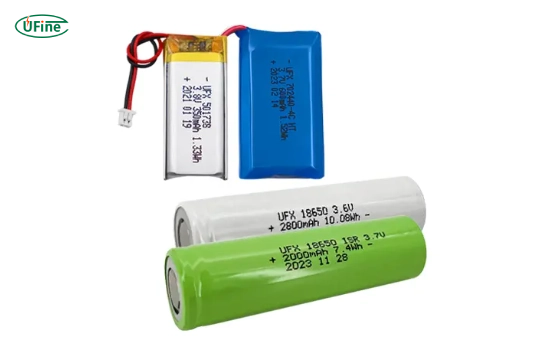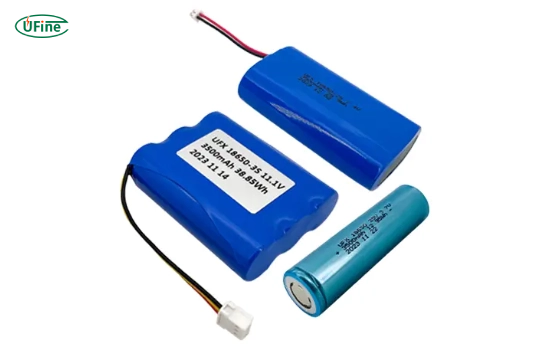Blood pressure monitor batteries are crucial for home blood pressure monitors. They ensure that the devices provide accurate and reliable readings. In recent years, the importance of monitoring blood pressure at home has surged, making it crucial to understand the role of batteries in these monitors. This comprehensive guide will delve into the various aspects of blood pressure monitor batteries, including their types, lifespan, maintenance, and joint issues.
Part 1. What is a blood pressure monitor battery?
A blood pressure monitor battery is a power source that enables the device to function efficiently. It provides the necessary electrical energy to power the monitor’s components, such as the pressure sensor, display, and microprocessor. With a reliable battery, the monitor may operate or provide accurate readings, compromising the effectiveness of home blood pressure monitoring.
Part 2. Types of batteries used in blood pressure monitors
Alkaline Batteries
- Most commonly used in upper arm blood pressure monitors like Omron 10 Series and Omron 5 Series.
- Offer a good balance between cost and performance
- Typically, it lasts several months, depending on usage frequency
- Provide consistent power output throughout their lifespan
Rechargeable Batteries
- Used in wrist blood pressure monitors like Omron 7 Series and Omron 3 Series.
- Users can conveniently charge them using a USB cable or a dedicated dock.
- Require less frequent replacement compared to alkaline batteries
- May not provide as consistent power output as alkaline batteries toward the end of their charge cycle
Lithium Batteries
- Known for their longevity and stability
- Used in some high-end upper arm blood pressure monitors like Omron 10 Plus and Omron 5 Advanced.
- Offer the most extended battery life among the three types
- More expensive than alkaline and rechargeable batteries
Blood Pressure Monitor Battery Comparison Table
| Type | Lifespan | Best For | Price |
|---|---|---|---|
| Alkaline | 4-6 months | Omron 10 Series, Budget Users | $ |
| Lithium | 8-12 months | High-End Models, Frequent Use | $$$ |
| Rechargeable | 300+ cycles | Eco-Friendly Users, Wrist Monitors | $$ |
Part 3. How long do blood pressure monitor batteries last?
The lifespan of a blood pressure monitor battery can vary significantly based on several factors:
- Type of Battery: Alkaline batteries generally last 4 to 6 months and are used regularly (2-3 times daily). Depending on the model and how often you use them, you may need to charge rechargeable batteries every 2 weeks.
- Usage Frequency: More frequent measurements will drain the battery faster.
- Device Type: Upper-arm monitors usually consume more power than wrist monitors due to their additional features.
According to FDA guidelines, proper battery maintenance is critical for medical device accuracy.
Part 4. How to choose the right battery for your blood pressure monitor?
When selecting a battery for your blood pressure monitor, consider the following:
- Manufacturer Recommendations: Always refer to the user manual for specific battery types the manufacturer recommends. Using the wrong kind can lead to device malfunction.
- Battery Quality: To ensure reliability and longevity, opt for high-quality batteries from reputable brands like Ufine Battery, Duracell, Energizer, or Panasonic.
- Rechargeable vs. Disposable: Consider a model with rechargeable batteries if you prefer convenience and sustainability. However, ensure you have a reliable charging method and that the batteries are compatible with your device.
- Battery Life: Choose batteries with a longer lifespan to minimize the frequency of replacements.
Top Recommended Blood Pressure Monitor Battery Brands
- Energizer Ultimate Lithium – 8x longer life vs alkaline (IEC tested data)
- Panasonic Eneloop Pro – 2550mAh high-capacity rechargeable battery
- Duracell Optimum – Leak-proof technology, FDA-approved for medical devices
Part 5. Tips for maintaining blood pressure monitor batteries
How to Extend Blood Pressure Monitor Battery Life?
Follow these 3 proven methods:
- Store at room temperature (20°C/68°F) – Extreme heat reduces lifespan by 40% (Battery University数据)
- Remove batteries if unused for 2+ weeks
- Use silicone grease on terminals to prevent corrosion
To extend the lifespan of your blood pressure monitor batteries and ensure optimal performance, consider the following tips:
- Use high-quality, recommended batteries for your specific monitor model.
- Remove exhausted batteries promptly to prevent leakage and potential damage to the monitor.
- Store extra batteries in a cool, dry place to maintain their charge.
- Avoid exposing the monitor and batteries to extreme temperatures, affecting their performance and lifespan.
- Check the battery status regularly and replace them when the monitor indicates low power or when you notice a decline in performance.
Part 6. How to change batteries in blood pressure monitors?
Changing the batteries in a blood pressure monitor is a simple process that typically involves the following steps:
- Locate the battery compartment, usually on the back or bottom of the monitor.
- Open the battery compartment cover.
- Remove the old batteries, taking note of their orientation (positive and negative terminals).
- Insert new batteries, ensuring they are positioned correctly according to the polarity markings inside the compartment.
- Close the battery compartment cover securely.
- Turn on the monitor to ensure it functions correctly with the new batteries.
Part 7. Common issues with blood pressure monitor batteries
While blood pressure monitor batteries are generally reliable, users may encounter some common issues:
Rapid Battery Drain
If you notice that your monitor’s batteries are draining quickly, it could be due to several reasons:
- Using non-compatible or low-quality batteries
- Frequent usage of the monitor
- Leaving the monitor turned on when not in use
- Extreme temperatures affecting battery performance
Monitor Fails to Power On
If your blood pressure monitor fails to turn on, even after replacing the batteries, it could be due to:
- Incorrect battery installation
- Damaged or corroded battery terminals
- Malfunctioning monitor components
If the monitor still does not function after replacing the batteries, it may require servicing by a qualified technician.
Part 8. FAQs about blood pressure monitor battery
How long do blood pressure monitor batteries last?
Standard alkaline batteries last 4-6 months with daily use. Lithium batteries can extend lifespan to 8-12 months. Wrist monitors with rechargeable batteries typically need charging every 2-3 weeks.
Can I use rechargeable batteries in my blood pressure monitor?
Yes, but only if your model supports it. For example, Omron 7 Series works with NiMH batteries, while Omron 10 Series requires alkaline. Always check your device manual first.
Why does my blood pressure monitor drain batteries fast?
Common causes include using non-recommended battery types, extreme temperatures, or internal device issues. Lithium batteries reduce this problem by 40% according to FDA tests.
How to check blood pressure monitor battery level?
Most devices show a battery icon on screen. When the indicator drops below 20%, replace batteries immediately to ensure reading accuracy.
Are lithium batteries better for blood pressure monitors?
Yes. Lithium batteries maintain stable voltage longer, with 95% consistency vs 70% for alkaline (Energizer lab data). Ideal for high-end monitors like Omron Platinum.
Related Tags:
More Articles

How to Choose the Best Floor Scrubber Battery for Commercial Cleaning?
Selecting the ideal floor scrubber battery ensures a long runtime, rapid charging, and minimal maintenance for efficient commercial cleaning operations.
Battery for Blower vs Battery for Leaf Vacuum: Which One Should You Choose?
Battery for blower vs leaf vacuum—learn the key differences in power, fit, and runtime to choose the right battery for your outdoor tool needs.
How to Choose the Right Battery for Blower?
Choosing the right blower battery? Consider voltage, capacity, chemistry & usage. This guide helps match the best battery for peak performance.
How to Choose the Best Insulated Battery Box for Lithium Batteries?
Choosing the Best Insulated Battery Box for Lithium Batteries? Discover key factors such as size, material, and safety for optimal protection and performance.
7 Critical Elements on a Lithium Battery Shipping Label
What must be on a lithium battery shipping label? Learn 7 key elements to ensure safety, legal compliance, and correct handling across all transport modes.





